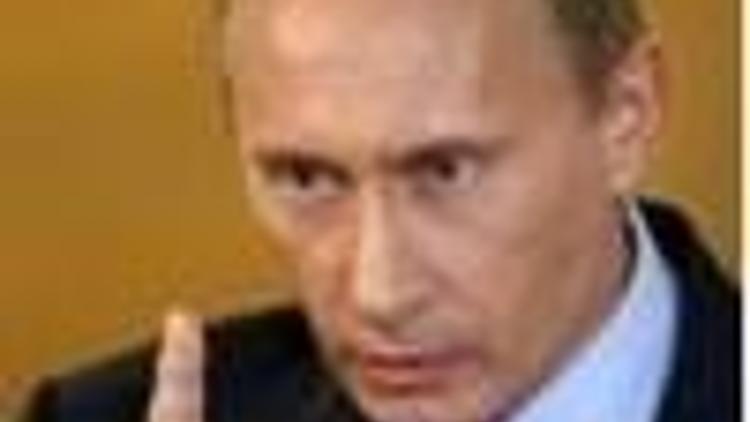Hurriyet English with wires
Oluşturulma Tarihi: Ağustos 29, 2008 10:02
Russia on Friday hit back at the G7 for condemning Moscow’s recognition of Georgian rebel regions as independent, saying its stance was "biased" and justified "Georgian acts of aggression." (UPDATED)
The Group of Seven's condemnation "is biased in character and is aimed at justifying Georgian acts of aggression," a Russian foreign ministry statement said.
Russia is facing an avalanche of criticism from the West after it formally recognized South Ossetia and Abkhazia as independent states.
The G7 strongly condemned the move in a statement on Wednesday, saying: "Russia’s decision has called into question its commitment to peace and security in the Caucasus."
�
"We deplore Russia’s excessive use of military force in Georgia and its continued occupation of parts of Georgia," said the statement by foreign ministers from Britain, Canada, France, Germany, Italy, Japan and the United States. The Russian foreign ministry reiterated that it had "completely fulfilled" the six-point ceasefire agreement brokered by France to end the conflict between Georgia and Russia. The G7 had called on the Russian government to "implement in full" the peace plan. Russia maintains it has completed a troop withdrawal from deep inside Georgian territory, in line with the ceasefire accord, and that those troops remaining are serving in a "peacekeeping" mission. The foreign ministry underscored that Moscow’s "actions were to prevent a destabilization of the entire Caucasus region."
PUTIN BLAMES U.S.
Russia's Prime Minister Vladimir Putin also blamed United States of provoking Georgia crisis. Putin said in a CNN interview on Thursday that he suspected someone in the United States had provoked the Georgia conflict to make the situation more tense and create "a competitive advantage for one of the candidates fighting for the post of U.S. president." He did not elaborate. Moscow expressed alarm at a naval build-up in the Black Sea, an area normally dominated by its southern fleet, and Putin said he suspected U.S. nationals had been involved on the Georgian side during battles with Russian forces. "It that was the case, then the recent events could have a American domestic political dimension," he said in the CNN interview.
"If that is true, if that is confirmed, then that's really bad. It's very dangerous and a mistaken policy," he said.
White House spokeswoman Dana Perino said Putin's allegations were "patently false" and the U.S. State Department said it was "ludicrous" for the Russians to say they were not responsible for what had happened in Georgia.
The United States has sent several warships to the zone, apparently to deliver aid, including the flagship of its Sixth Fleet, the sophisticated joint command ship Mount Whitney.
Moscow has responded by sending the flagship of its Black Sea fleet, the guided-missile cruiser Moskva, to the Abkhaz port of Sukhumi.
ASIAN SUPPORT TO RUSSIA
Moscow has defied pressure from the West powers to pull out of Georgia and looked east to its Asian allies, including China, for support at a regional summit.
The grouping, meeting in the Tajik capital Dushanbe, repeated a regular call for the "respect of territorial integrity" and did not follow Russia's lead on recognizing the two breakaway regions of Georgia
Russian President Dmitry Medvedev won a measure of support from Central Asian ally Tajikistan for Moscow's actions over Georgia.
Tajik President Imomali Rakhmon said diplomatic solutions were best but expressed understanding for Russia's actions after Moscow fought a brief war with its tiny southern neighbor Georgia, AFP reported.
No other state has followed Moscow's lead on recognizing the breakaway Georgian areas, including Tajikistan. But Rakhmon said his country supported its ally on many issues.
"Without question this refers to a range of measures which Russia is undertaking in the Caucasus," he said after signing a joint statement with Medvedev following bilateral talks in the Tajik capital, Dushanbe.
"At the same time, diplomatic methods to resolve these questions are preferable," he said, repeating a view taken on Thursday by fellow members of a regional grouping that includes Russia, China and three other Central Asian states.


